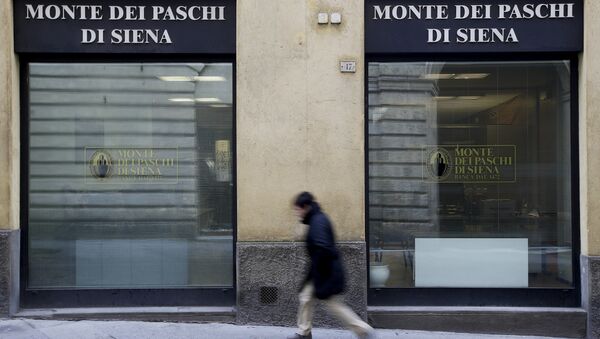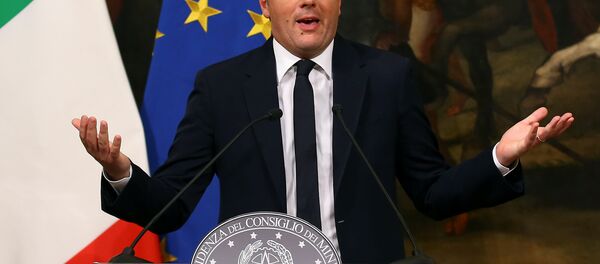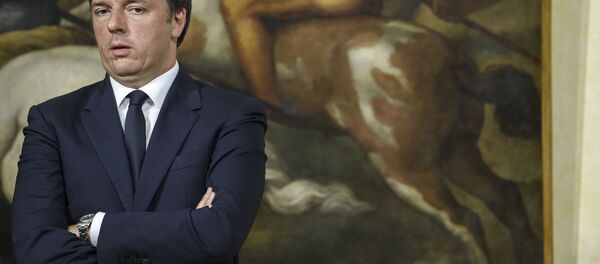Kristian Rouz – After the European Central Bank (ECB) declined to assist in the recapitalisation of the crisis-hit bank Monte dei Paschi last week, the realignment in the Italian banking sector intensified on Monday.
A Milan-based bank, UniCredit SpA, sold its subsidiary Pioneer Investments for $2.3 bln, after last week having sold its stake in a Polish bank in an effort to raise capital. Another major Italian lender, Monte Paschi, requested investor support for a larger-scale debt-to-equity swap. If approved, the deal will result in a slight depreciation of Italian banking stocks. If not, a state bailout or imminent banking collapse are further options.
The world’s oldest bank, the Italian Banca Monte dei Paschi di Siena SpA, had been in trouble for months, but it is the constitutional referendum earlier this month that made the bank’s situation nearly critical by fuelling the fears of Itexit and higher financial market volatility. Monte Paschi needs an urgent recapitalisation by 5 bln euros ($5.3 bln) in order to avoid a meltdown stemming from the dismal economic reality and low lending profitability in Italy in the recent years.
“The recap of Banca MPS on the market remains extremely difficult to realize in the current context and in such a short period of time,” Luigi Tramontana of Banca Akros said. “The alternative would be the nationalisation of the bank and burden sharing by hybrid and subordinated bondholders.”
UniCredit, on its part, with its ongoing selloff in assets, has managed to maintain investor confidence in this tumultuous period. News of the increase in capitalisation have pushed UniCredit’s stock up by 3.8pc on Monday, and a forecasted net capital gain of 2.2 bln euros next year will allow the bank to position itself as more sustainable, increasing its competitiveness in the Italian market.
Even though the Italian banking sector does not seem to be in a desperate state at this point, further political instability and prolonged Itexit speculation might make it worse. Besides, after the ECB expanded its stimulus package for the Eurozone’s economy, the regulator refused to bail out Monte Paschi last week, without providing any commentary.
The Italian populist Five Start Movement, the ultimate Itexits adepts, were quick to provide feedback and however.
“MPS can only be saved by state aid in order to avoid bail-in rules [that hurt] small savers, as happened a year ago,” Members of the European Parliament from the Five Star Movement said in a collective statement on their leader Beppe Grillo’s blog. “This is not the time to fear the European Union and a possible infraction procedure. The consequences of a disordered bail-in would be disastrous to say the least, almost apocalyptic if one considers the size of MPS.”
Making things more alarming, Italian non-performing loans (NPLs) have almost reached an aggregated 200 bln euros. Italian banks need an estimated 40 bln euros in reserve capital just to stay afloat, and currently the entire Italian banking system in 50pc undercapitalised.
The ECB has repeatedly refused please to help Monte Paschi, but this time around the regulator declined to play ‘extend and pretend’. Should Monte Paschi fail to convince its investors approve the 5 bln-euro debt-to-equity swap, an inevitable nationalisation or collapse would further embolden the Five Star Movement, bringing the Itexit closer.







